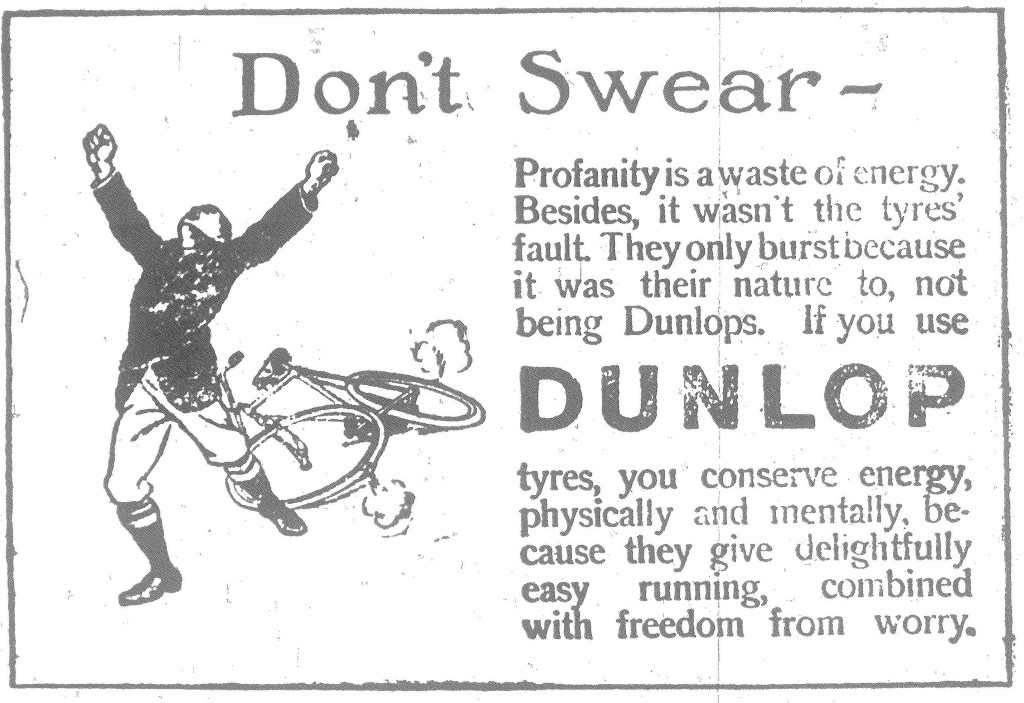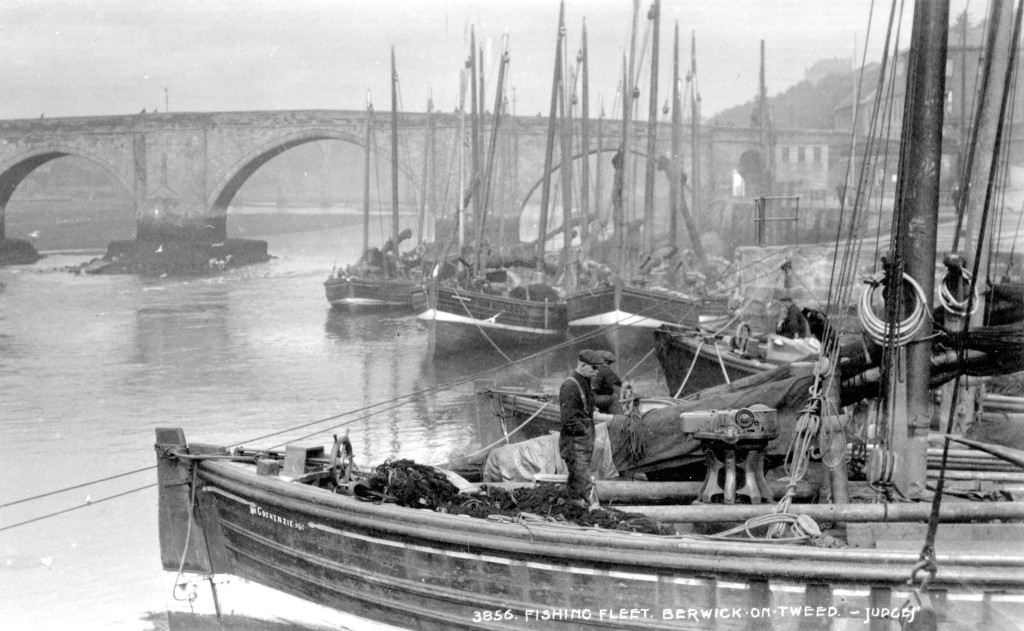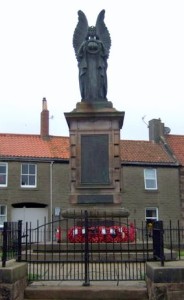MYSTERY AIRMAN
MAN SUDDENLY FINDS HIMSELF IN BERWICK,
IS LATER IDENTIFIED BY HIS MOTHER,
A BELFAST LADY.
Berwick residents found themselves face to face with as sensational a “Mystery Story” as ever could be found in the Sunday papers last week when it became known that a man who had fallen down in Castlegate the week previously and had been taken to the Infirmary had suffered from loss of memory since 1917.
Such was the statement made by a tall, refined and well-groomed young man giving the name Bert Templeton King, an ex-U.S.A. Airman. King was found in Castlegate by a man named Conway, suffering it was thought from a fit. He was taken to the Infirmary, where he was seen by Dr W. B. Mackay and others, who formed the opinion that he was suffering from lost memory. The matter was brought to the notice of Supt. Halliday, who had several interviews with King in all of which, while he talked intelligently, he professed to know nothing about himself since 1917.
KING’S STORY
His story was to the effect that his father was on the shipping line, a citizen of New Jersey, U.S.A., and he himself had been an artist prior to joining the American Air Force in 1917. He stated that he could remember events clearly up to that year and amongst other things he said he had been trained at Mineola Aerodrome, New York, and had taken his pilot’s certificate. This was found in his possession, along with an American Registration Card. He had two kit bags full of clothing with him and a number of letters, but no money, and the Police set out to see if anything could be done to lead to identification.
THE POLICE “HAE THEIR DOOTS.”
In passing, it may be said the police were suspicious of the medical theory of lost memory; at least, not from such a distant period as 1917, it being contended that no man could wander across the Atlantic and travel up and down the country for nearly four years without showing some abnormal traits, consistent with loss of memory. Subsequent events seemed to prove that the police theory was very near the mark.
Inquiries instituted proved beyond doubt that King had been employed as a chauffeur with a gentleman in Sussex more than a year ago, and had then travelled north to take up a similar position with a gentleman living at Davidson’s Mains, East Lothian. King had been normal enough to carry on an intelligent correspondence with a young Edinburgh lady with whom he was on friendly terms. He seems to have told her quite a different story to that which he had told to the police.
His father was a motor car manufacturer in New Jersey, he is alleged to have said, and he was across in this country acting as agent for his father’s cars.
After having kept company for some six months with this young lady, King seems to have announced his intention of going south to Southampton, it was believed with the intention of returning to America. How he expected to get there without money is not clear, but it is a fact that he had none when he was picked up in Castlegate on Wednesday week.
It was explained to King by the police that he had told a different story to the girl in Edinburgh to that which he had given in Berwick, and he replied, “ What girl! I know no girl there, and cannot remember having said that.” Superintendent Halliday then showed him the girl’s photo. To this he replied, “I have never seen her before.”
THE MYSTERY MAN ADOPTED
Full publicity having been given to the “Mystery Man” in the daily Press, the police had several inquiries for people in different parts of the Kingdom who had lost touch with a relative of their own. On Saturday three ladies arrived in Berwick, one of whom proved to be King’s mother, who had travelled from Belfast, and the others were his aunts. They identified him without difficulty, and though King contended he did not know them, he said he would go with them.
It transpires that King’s parents read of the “Mystery Man” in the “Daily Mail” and immediately recognised that it referred to their son, who they had been in touch with up to two years ago. The parents are well-to-do people, the father holding an important position in Harland Wollfs’s shipyard, Belfast. They are of Scotch extraction, which does not tally with King’s story of being a native of New Jersey. It happens; however, he was in America prior to 1917 and did serve, as he says, in the American Air Force. His parents, with whom he had been in touch from 1917 to 1919, know of no period when he suffered from loss of memory, and his movements up to two weeks ago seem to show him to have been normal, and his lapse of memory can only be traced from the time he arrived in Berwick.
During his stay in the Infirmary he has been very popular with the medical men, staff and convalescents, and has been going messages from one ward to another evidently quite normally. Mrs King is staying on in Berwick until the medical men give permission for her son to travel home.







